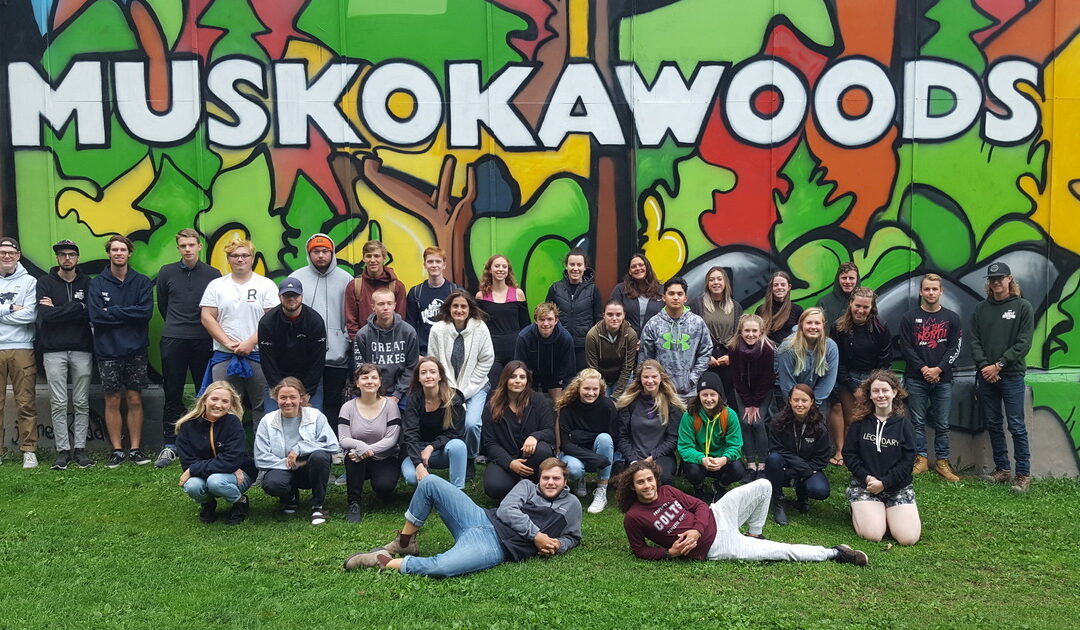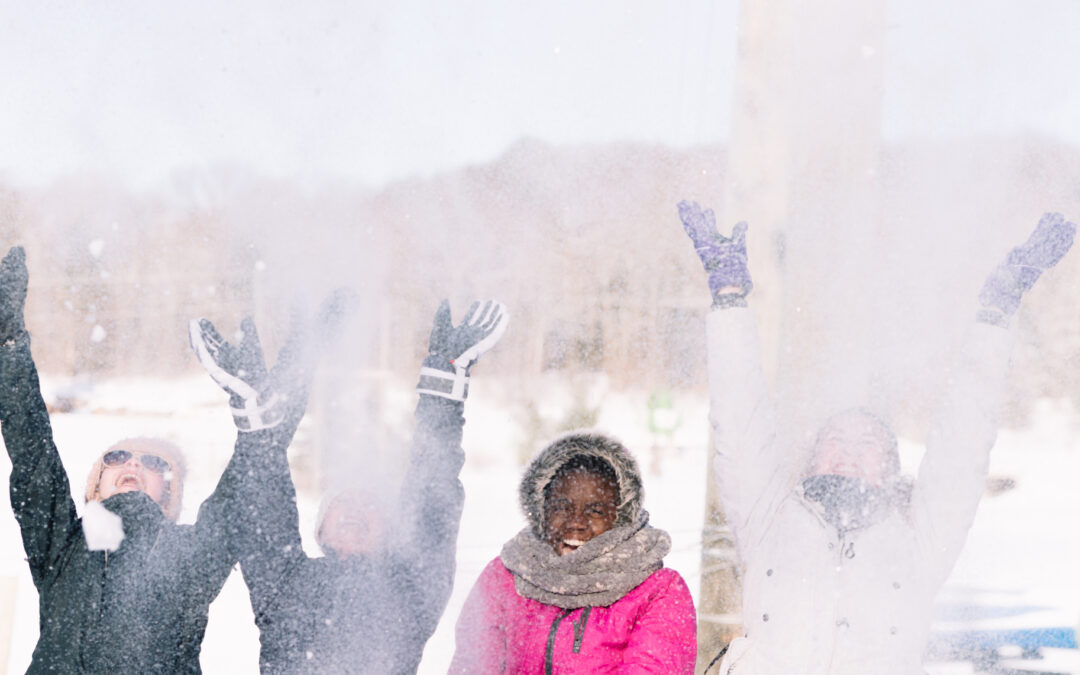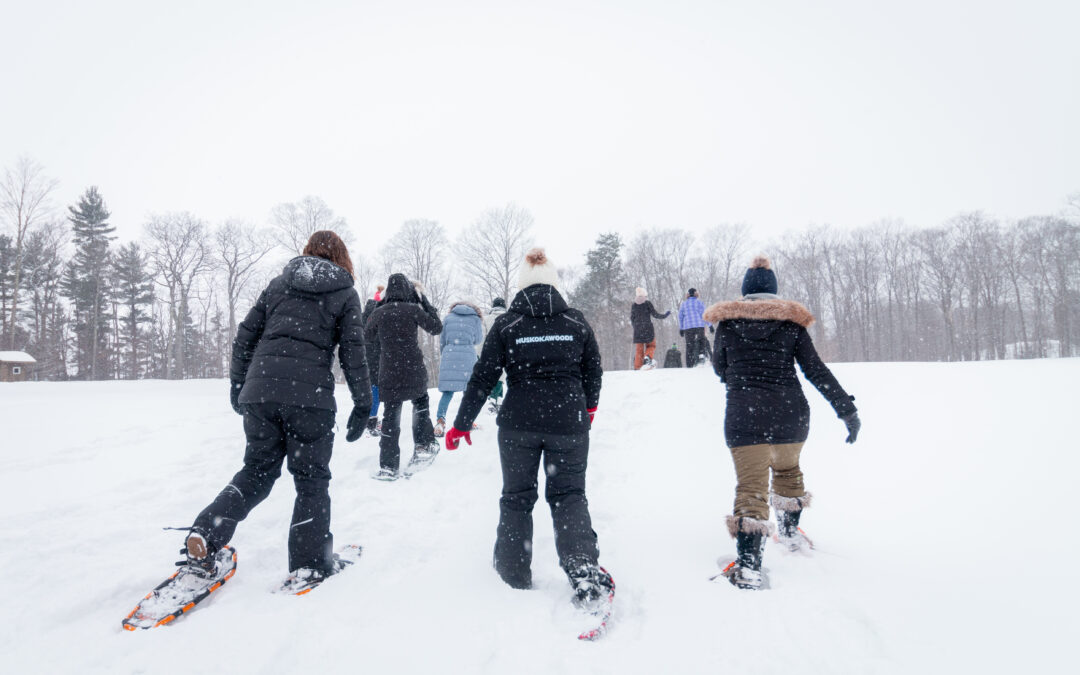Canadian kids are spending a big chunk of their day on screens with more than half of youth in Grades 6 to 12, spending more than two hours per day on screen-based activities for an average of a whopping 7.8 hours. And it’s not all spent on gaming or social platforms — they’re also using screens for online schoolwork and research. Help your students reap the benefits of stepping away from their screens by planning a tech-free school trip. Swapping their phone for a compass, camera, or rope harness provides a multitude of benefits including increased physical activity, the forging of meaningful social bonds, outdoor exploration and the learning experiences that come along with it, opportunities for personal growth, not to mention, a mental break from the pressures of social media.
Disconnecting in the Digital Age
Going tech-free on school trips benefits kids in the following ways:
Promoting Physical Activity
School trips, in general, benefit kids physically because they are typically on the move, whether exploring a new city, walking around a museum, or connecting with the great outdoors in a natural setting like the one offered by Muskoka Woods. This is particularly important considering that Canadian kids scored a D when it comes to physical activity on ParticipACTION’s 2022 Report Card on Physical Activity for Children and Youth, with only 28% of kids meeting the recommendations in the Canadian 24-Hour Movement Guideline for Children and Youth. Physical activity is not only important for kids’ physiologically, but also for their self-confidence and mental health.
Fostering Meaningful Connections
Spending too much time on screens can reduce opportunities for kids to engage in face-to-face social interactions, which are essential for social development. In her TED Talk, therapist Jenny Black (who also appeared on the Shaping Our World podcast) talks about the concept of “inside treats” — that feeling you get from a positive real-life encounter (she uses the example of her daughter holding the door open for someone who was appreciative in return) — as being more valuable and lasting than a “like” or “follow” on social media. Being glued to a phone inhibits those important social interactions and essentially isolates the users. Being in a tech-free environment on a school trip promotes conversation. In person, students may need to rely on verbal communication and non-verbal cues, such as body language and facial expressions, to convey their thoughts and emotions, which enhances communication skills. Without the pull of digital devices students are more mindful and present, leading to better listening and understanding of others, which is why so many life-long friendships are forged at Muskoka Woods!
Encouraging Outdoor Exploration
Outdoor education provides students with learning experiences beyond the traditional classroom setting, which is an integral part of holistic learning. With the goal of cultivating a child’s physical, emotional, moral, psychological, and spiritual attributes, a more holistic approach to learning is beneficial to a young person’s mind, body and soul. Dr. Leigh Vanderloo, Scientific Director at ParticipACTION, recommends that kids spend more time outside.
Not only are kids and adults more active and less sedentary outdoors, but extended periods of screen use drop way down when we’re outside,” Dr. Vanderloo says on the Shaping Our World podcast.
Being outside is also strongly correlated to mental health. Spending time in nature has been shown to reduce stress, improve mood, and even enhance cognitive function. Being outside and tech-free also necessarily gives kids a break from the pressures of the more predatory social media apps. “Liking” others’ content and spending more than three hours per day satisfying the demands of social media have been linked to doubling the risk of poor mental health outcomes in adolescents.
Providing Opportunities for Personal Growth and Development
Stepping away from habits like scrolling on social media also gives students time to discover and hone new skills. Whether it be a new appreciation of art or a new hobby like archery, students have the opportunity and desire to try new things when they’re not preoccupied by a screen. Disconnecting from technology also enables kids to engage in activities that promote creativity, such as spending time in nature, taking “brain breaks,” and pursuing hobbies. In an environment like Muskoka Woods, your school or group will necessarily discover leadership skills and problem-solving skills by taking on new challenges through our leadership-focused programming.
Improving Academic Performance
We’ve already talked about how school trips in general, enhance students’ learning, by igniting a passion for learning and providing invaluable life lessons and making them tech-free only enhances those benefits because without the distraction of screens, students are able to devote their full time and attention to what’s happening around them.
Interestingly, a study that followed students who participated in an “Unplugged Day” during online learning owing to the pandemic, reported that students who unplugged for 24 hours had more positive general and school-related emotions and they also reported having more energy and feeling less tired, which has a direct impact on academic performance.
Muskoka Woods encourages that students are tech-free during their school or group experience so that they have the capacity to fully immerse themselves in the spectacular natural setting and to take full advantage of the valuable (and fun!) opportunities to be active, connect to nature, make deeper classroom connections, and develop new skills. Visit schools.muskokawoods.com for more information or to book your next tech-free school trip.




